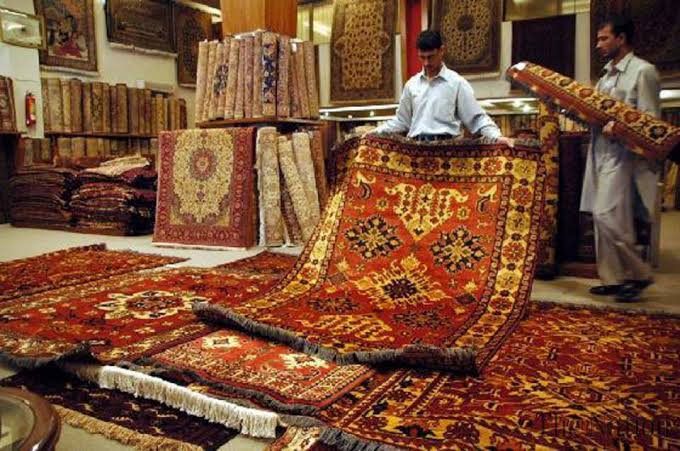SHANGHAI : More interaction is needed to increase Pakistani carpets’ presence in China, says a report published by Gwadar Pro on Thursday.
According to the report, “Pakistan is famous all over the world for its hand-made carpets. Pakistan has the ability to produce high-quality carpets according to the taste of global importers, whether in terms of design, color, size, and so on,” Akhtar Nazir Khan Cooki, Chairman of Pakistan Carpets Manufacturers and Exporters Association (PCMEA), said at a webinar.
“The types of carpets that are manufactured in Pakistan include Super Kazzak/ Yakash Kazzak, Chobi, Khurjeen, etc. And carpets can be transported from Pakistan to China by sea, air, and land. Pakistan’s carpets industry values the opportunity of export to China,” he added.
The webinar on the export of carpets from Pakistan to China was held by the Consulate General of Pakistan in Shanghai in collaboration with the Trade Development Authority of Pakistan (TDAP) and Pakistan Carpets Manufacturers and Exporters Association (PCMEA) on Wednesday.
In his opening remarks, Mr. Hussain Haider, Consul General of Pakistan in Shanghai, underlined that China is continuing to liberalize its trade and investment regime and paying more attention to expanding domestic demand and consumption, which creates space for importing high-quality goods from Pakistan.
“During the financial year 2020-21, Pakistan’s export of carpet worldwide was $74 million. However, Pakistani carpets have a very low presence in the Chinese market,” he said, adding that the China-Pakistan Free Trade Agreement provides zero-tariff benefits for carpets trade, and more interaction is needed to increase the presence of Pakistani carpets in China.
Mr. Khurram Ikram, Deputy Director, TDAP added that the carpet manufacturing industry employs a large number of workers, creating production activities and skills for low-income groups.
He reaffirmed that building matchmaking and interaction platforms would lay a very important foundation for the development of the industry.
The webinar was attended by around 25 companies from Pakistan and China. Representatives from different carpet manufacturing industries in Pakistan introduced their products.
The Chinese participants also advised Pakistani companies on the appropriate communication and marketing strategies to penetrate the Chinese market. They also expressed interests in cooperation with carpet manufacturers and exporters from Pakistan.
During the interactive session, Chinese participants asked many questions about Pakistan’s carpet industry, particularly about how to distinguish hand-made carpets from machine-made carpets and whether the exclusive brand agency can be granted. These questions were answered by PCMEA.

















